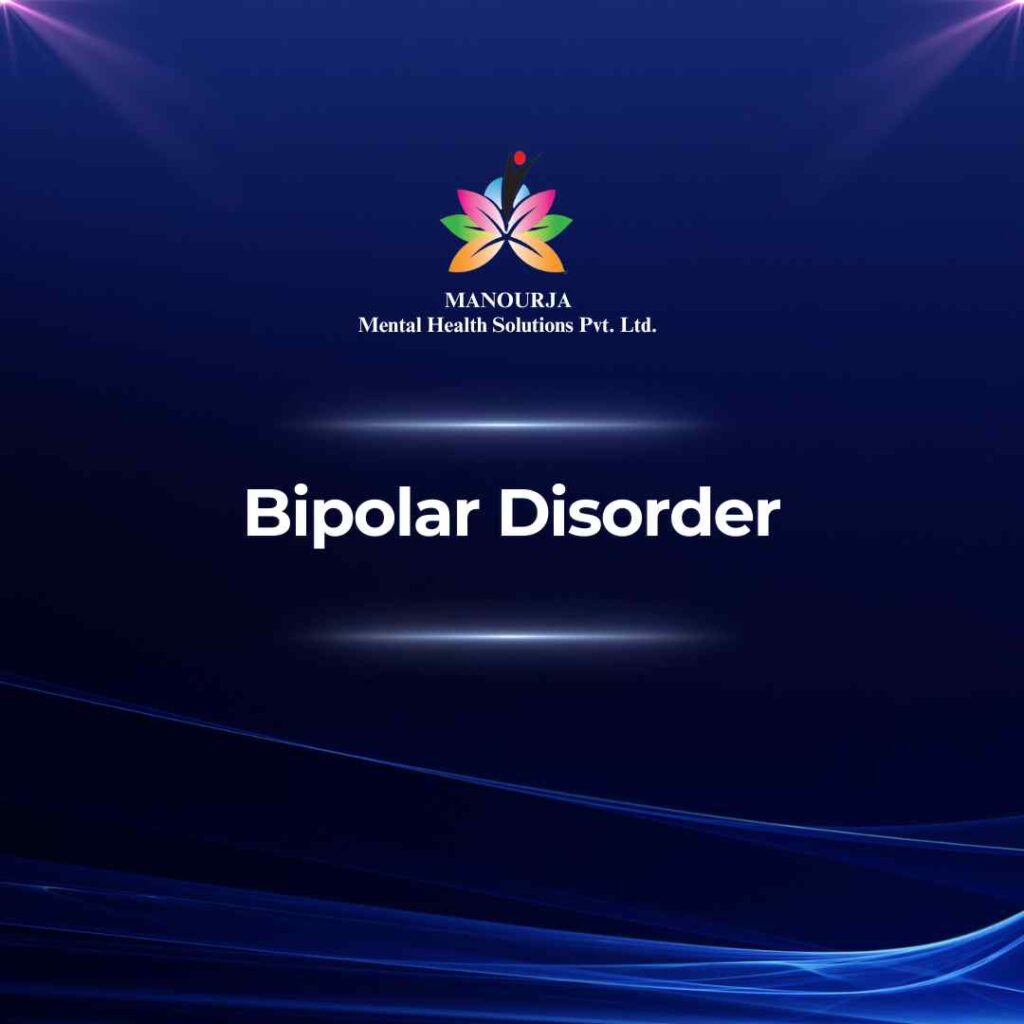Bipolar Disorder

Bipolar disorder, formerly known as manic-depressive illness, is a complex mood disorder characterized by significant shifts in mood, energy, activity levels, and the ability to carry out day-to-day tasks. These shifts are much more severe than the normal ups and downs that everyone goes through from time to time.
Here’s a comprehensive look at the meaning, characteristics, forms, and treatments of bipolar disorder:
Meaning of Bipolar Disorder :
Bipolar disorder is defined by alternating episodes of mania (or hypomania) and depression. The dramatic mood swings associated with this disorder can affect relationships, job performance, and daily functioning, but they do not follow a set pattern. The mood changes in bipolar disorder are more intense and can result in impaired functioning in daily life.
The key characteristics of bipolar disorder include:
- Manic Episodes
These involve elevated or irritable moods that last at least one week and are severe enough to cause noticeable difficulty at work, at school, or in social activities and relationships. Symptoms may include inflated self-esteem, decreased need for sleep, talkativeness, racing thoughts, distractibility, increased goal-directed activity, or risky behavior.
- Hypomanic Episodes
These are similar to manic episodes but less severe and do not include psychotic features. They last at least four consecutive days and are clearly different from the person’s non-depressed mood.
- Depressive Episodes
These episodes involve feelings of intense sadness, hopelessness, or emptiness, along with a lack of interest or pleasure in most activities. Other symptoms may include significant changes in appetite and sleep patterns, fatigue, feelings of worthlessness or excessive guilt, difficulty concentrating, and recurrent thoughts of death or suicide.
Forms of Bipolar Disorder
Bipolar disorder manifests in several forms, each characterized by the nature of the mood episodes:
- Bipolar I Disorder
This form is marked by manic episodes lasting at least seven days or by manic symptoms that are so severe immediate hospital care is needed. Usually, depressive episodes occur, lasting at least two weeks.
- Bipolar II Disorder
Characterized by pattern of depressive and hypomanic episodes, but not the full-blown episodes typical of Bipolar I Disorder.
This is a milder form involving numerous periods of hypomanic symptoms as well as numerous periods of depressive symptoms lasting for at least two years (one year in children and adolescents), but the symptoms do not meet the diagnostic requirements for a hypomanic episode or a depressive episode.
Treatment of Bipolar Disorder
Effective management of bipolar disorder typically requires a combination of treatments:
- Medications
Mood stabilizers (e.g., lithium, valproic acid), antipsychotics, and antidepressants are commonly used to manage mood swings and other symptoms associated with bipolar disorder. Finding the right medication or combination of medications may require time and adjustment.
Various forms of psychotherapy, including cognitive-behavioral therapy (CBT), psychoeducation, and family-focused therapy, can be beneficial. These therapies help patients understand their condition, manage their symptoms, and improve their communication and coping mechanisms.
- Lifestyle Modifications
Regular exercise, maintaining a regular sleep schedule, and avoiding stimulants like caffeine can help manage symptoms. Monitoring mood changes and triggers is also crucial.
- Support Groups
Participating in support groups provides an opportunity to share experiences and coping strategies, and to gain support from others who understand the challenges of living with bipolar disorder.
- Other Treatments
For severe cases that do not respond to medication and psychotherapy, electroconvulsive therapy (ECT) or newer modalities like transcranial magnetic stimulation (TMS) may be explored.
Effective treatment plans for bipolar disorder often involve a combination of these approaches, tailored to the individual’s specific needs and circumstances. Continuous medical follow-up is essential to monitor and adjust treatment as needed to achieve the best possible outcome.
At MANOURJA, we believe in the transformative power of counseling. Our experienced therapists offer a safe and supportive space where you can explore your thoughts, emotions, and challenges. Through personalized counselling sessions, we’ll work together to develop coping strategies, build resilience, and achieve lasting positive change. Discover the path to a healthier, happier you with MANOURJA counselling services.
MANOURJA Rehabilitation Services
At MANOURJA, we’re dedicated to helping you in rebuild your life, after difficult times. Our rehabilitation services focus on understanding what you need to move forward, whether you’re recovering from addiction, trauma, or any psychological – social challenges. We create personalized plans, that are all about helping you, regain your strength and find hope again. With a caring team by your side, you’ll have the support to make real progress and take steps toward a brighter, healthier future.
